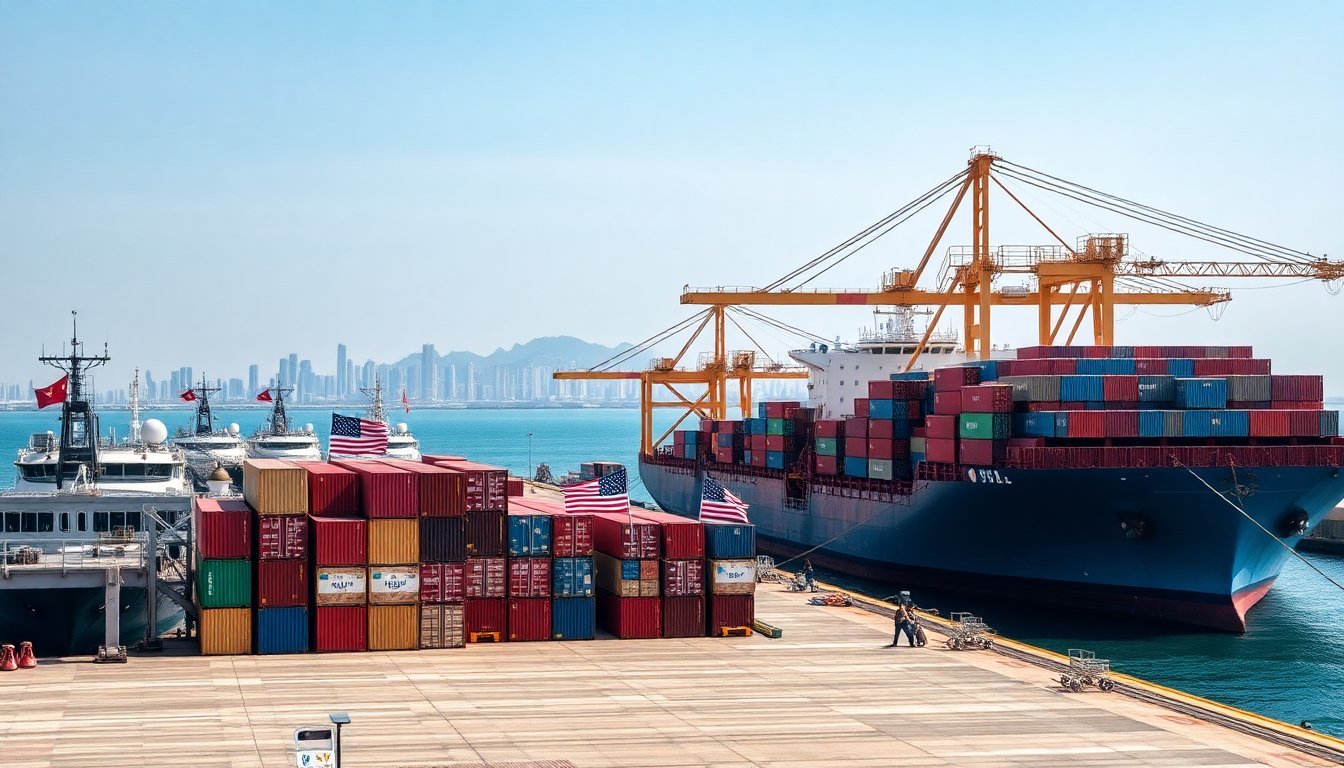Table of Contents
In a significant development that may alter maritime trade dynamics, China’s Ministry of Transportation announced the introduction of special fees for vessels owned by American companies, organizations, or individuals. This decision is likely to have extensive implications for U.S. shipping operations in Chinese ports, potentially raising operational costs and complicating logistics for American businesses.
The rationale behind the new port fees
The decision to impose additional charges on U.S. vessels arises amid escalating tensions between the two nations. As economic rivalries intensify, China’s government appears to be taking steps to safeguard its maritime interests while exerting pressure on American entities. The new fees are part of a broader strategy that reflects increasing nationalistic sentiments and a desire to assert control over key economic sectors.
Impact on U.S. shipping operations
For American shipping companies, the new port fees present a considerable obstacle. The maritime industry is already grappling with challenges such as rising fuel costs and ongoing supply chain disruptions. The introduction of these fees could further complicate operations. The financial strain from these charges may prompt some U.S. firms to rethink their shipping routes or even their overall engagement with Chinese markets.
Potential responses from the U.S. government
In light of these developments, the U.S. government might need to assess its response to China’s new regulations. Diplomatic channels could be pursued to address these economic challenges, and trade negotiations may be revisited to lessen the impact on American businesses. Additionally, U.S. trade officials might consider implementing countermeasures to safeguard American interests.
Long-term implications for international trade
The introduction of these fees could establish a precedent for similar actions in the future. This development may not only involve China but could also inspire other nations to follow suit. If countries start imposing fees based on the nationality of ship ownership, the global trade landscape may undergo significant changes. Such a shift could result in a fragmented maritime market, where shipping costs fluctuate considerably depending on the shipowner’s origin, complicating international logistics.
Furthermore, this approach could heighten existing tensions and provoke additional retaliatory measures. The maritime industry may find itself entangled in geopolitical disputes, impacting not only shipping companies but also the global supply chains that depend on the uninterrupted movement of goods.
China’s new fees for U.S. vessels reshape maritime trade
The recent announcement from China underscores the intricate relationship between global trade and international relations. As U.S. vessels prepare to encounter new financial challenges, stakeholders in the shipping industry must stay alert and adaptable. This evolving maritime landscape demands companies reassess their strategies amid changing regulations and geopolitical shifts.
The introduction of special fees for U.S. vessels by China marks a significant turning point in maritime trade and international economics. The implications of this decision will likely extend beyond immediate financial effects, impacting the broader discussion on trade relations and economic collaboration.


